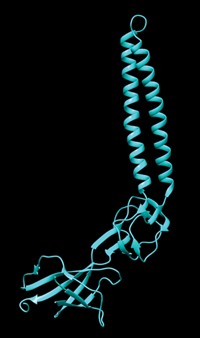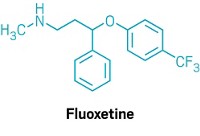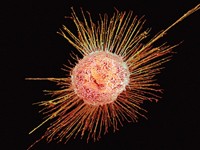Advertisement
Grab your lab coat. Let's get started
Welcome!
Welcome!
Create an account below to get 6 C&EN articles per month, receive newsletters and more - all free.
It seems this is your first time logging in online. Please enter the following information to continue.
As an ACS member you automatically get access to this site. All we need is few more details to create your reading experience.
Not you? Sign in with a different account.
Not you? Sign in with a different account.
ERROR 1
ERROR 1
ERROR 2
ERROR 2
ERROR 2
ERROR 2
ERROR 2
Password and Confirm password must match.
If you have an ACS member number, please enter it here so we can link this account to your membership. (optional)
ERROR 2
ACS values your privacy. By submitting your information, you are gaining access to C&EN and subscribing to our weekly newsletter. We use the information you provide to make your reading experience better, and we will never sell your data to third party members.
Biological Chemistry
Peptide Patrols The Gut
Antimicrobial molecule maintains a bacteria-free zone on intestinal surfaces
by Lauren K. Wolf
October 17, 2011
| A version of this story appeared in
Volume 89, Issue 42
An antimicrobial peptide released by cells lining the intestines is responsible for policing the bacteria that reside there, according to a team led by immunologist Lora V. Hooper of the University of Texas Southwestern Medical Center (Science, DOI: 10.1126/science.1209791). Biologists have known that there is an approximately 50-µm-thick, mucus-filled “demilitarized zone” protecting the gut from bacterial attack, Hooper says. But according to microbiome expert Peter J. Turnbaugh of Harvard University, the new study “makes a major stride toward understanding the mechanism responsible for this phenomenon and its potential impact on health and disease.” When Hooper and her colleagues removed the genes coding for the peptide—called RegIIIγ—from mice, they saw that rodent gut bacteria infiltrated the microbe-free zone, moving all the way to the intestinal tissue. Hooper says intestinal cells release RegIIIγ, which kills gram-positive bacteria, when a signaling protein called MyD88 sounds the alarm of invasion. The next step, she adds, is to figure out whether other policing peptides exist and to find ways of boosting RegIIIγ production for patients with gastrointestinal infection and disease.





Join the conversation
Contact the reporter
Submit a Letter to the Editor for publication
Engage with us on Twitter